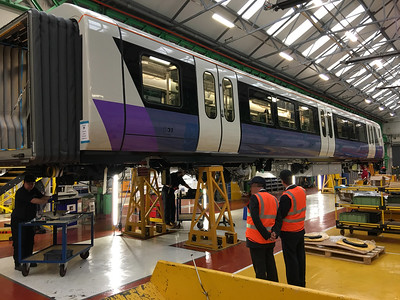Was the infrastructure project worth it?
A great many things have happened to Britain - and the British economy - since approval was granted for a new tube line in 2008. First there was a financial crash and a decade of austerity. Then there was one independence referendum for Scotland (which chose to stay) and another for the UK regarding its EU membership (it chose to leave and then spent the next four years arguing bitterly about how to do so). Zoom through the Covid-19 pandemic and all its lockdowns, and we end up at today, where we find ourselves in the middle of the most extreme cost-of-living crisis for thirty years. All of which is to say that when the Elizabeth Line, aka Crossrail, finally slides open its doors on the 24th May 2022, it will be opening in a very different London to the one it was originally conceived for.
For many people, the Elizabeth line is a representation of all that is wrong with infrastructure projects in Britain. For a start, adding more transport capacity to the capital feeds into a often-voiced frustration that other parts of the country are neglected in favour of it. (In 2019, the UK’s per-person spending on transport was 2.5x higher in London compared to the North of England.)
Crossrail is also opening four years after it was supposed to and costing £4 billion more than it was meant to. That can’t even be blamed entirely on the pandemic: a 2015 report found that 7 in 10 UK infrastructure projects end up more than 10 percent over budget, and three-quarters of them take over 10 percent longer to complete than planned. These extra expenses and delays weaken and sometimes overturn the conclusions of the initial cost-benefit calculations that were used to greenlight the project. That leads some people to conclude that the money Britain pours into big infrastructure projects could be better spent elsewhere. It's a question that has particular bite when the money is taxpayer-funded government revenue, as was the case for billions of pounds of the Crossrail project.
Of course, not everyone is so gloomy about the new line. It will make various journeys to and across the capital much quicker, and that has economic and wellbeing benefits, including reducing commuting times and making it easier for people to take new jobs, visit friends and family, attend business meetings and enjoy various leisure activities. The project has also created thousands of jobs in construction, operation and maintenance, and has apparently spurred the building of 90,000 new houses. That's welcome news for a country that seems to be permanently short of them.
The Elizabeth line will also increase London’s public transport capacity by 10 percent, which sounds like it should be a good thing. After all, not being crushed into packed tubes will make travelling more pleasant and encourage people to use environmentally-friendlier public transport rather than private cars. The issue is that it now seems far less certain that London actually needs all that extra space. Some people think that in a post-Covid world the number of people taking the tube will remain much lower than before, thanks to things like more remote work options.
Read our explainer on: cost-benefit analyses

